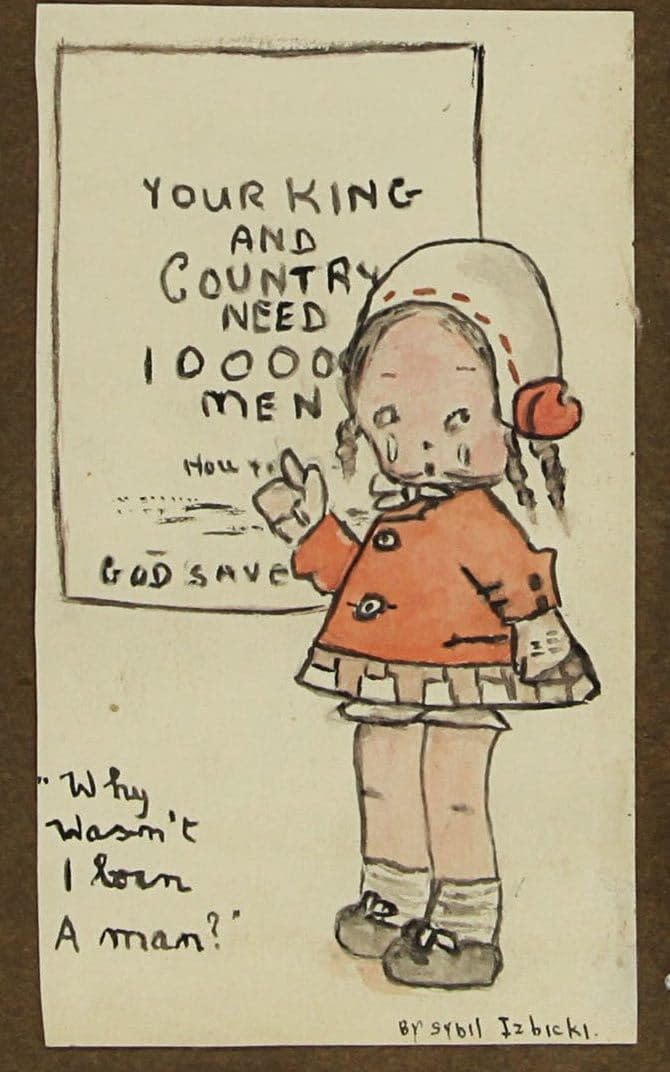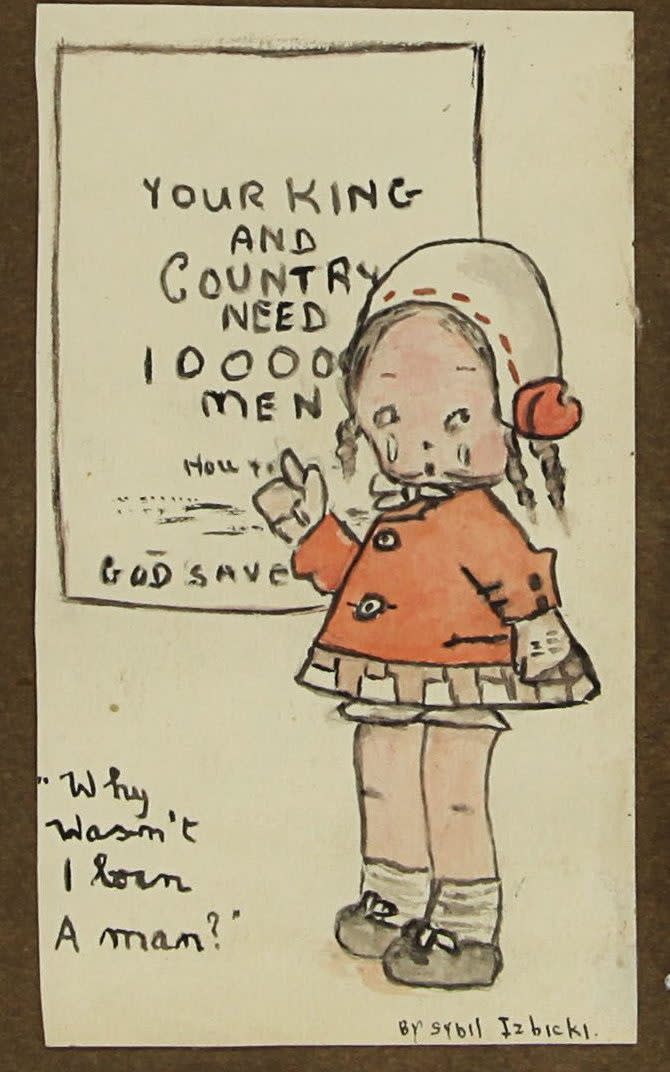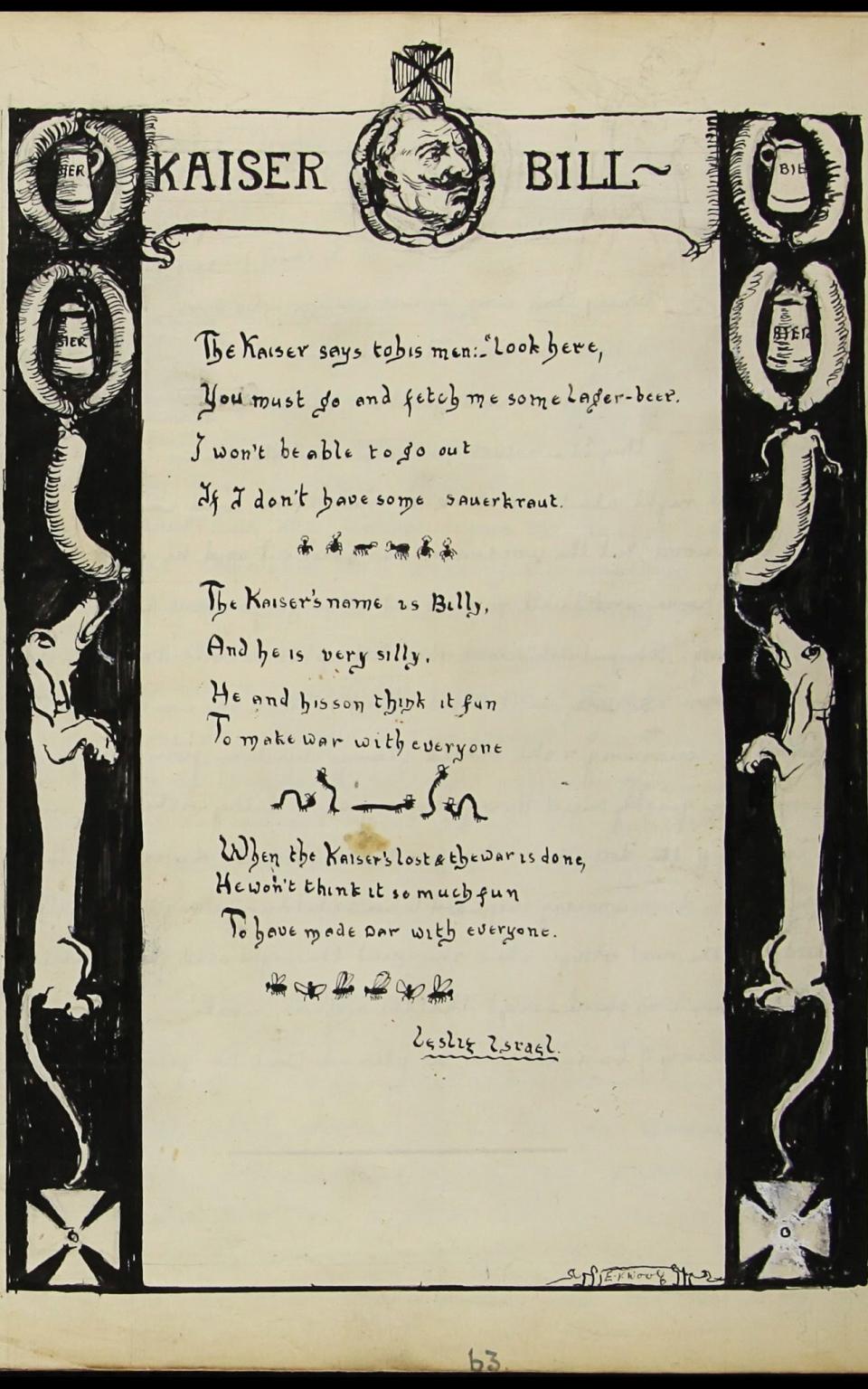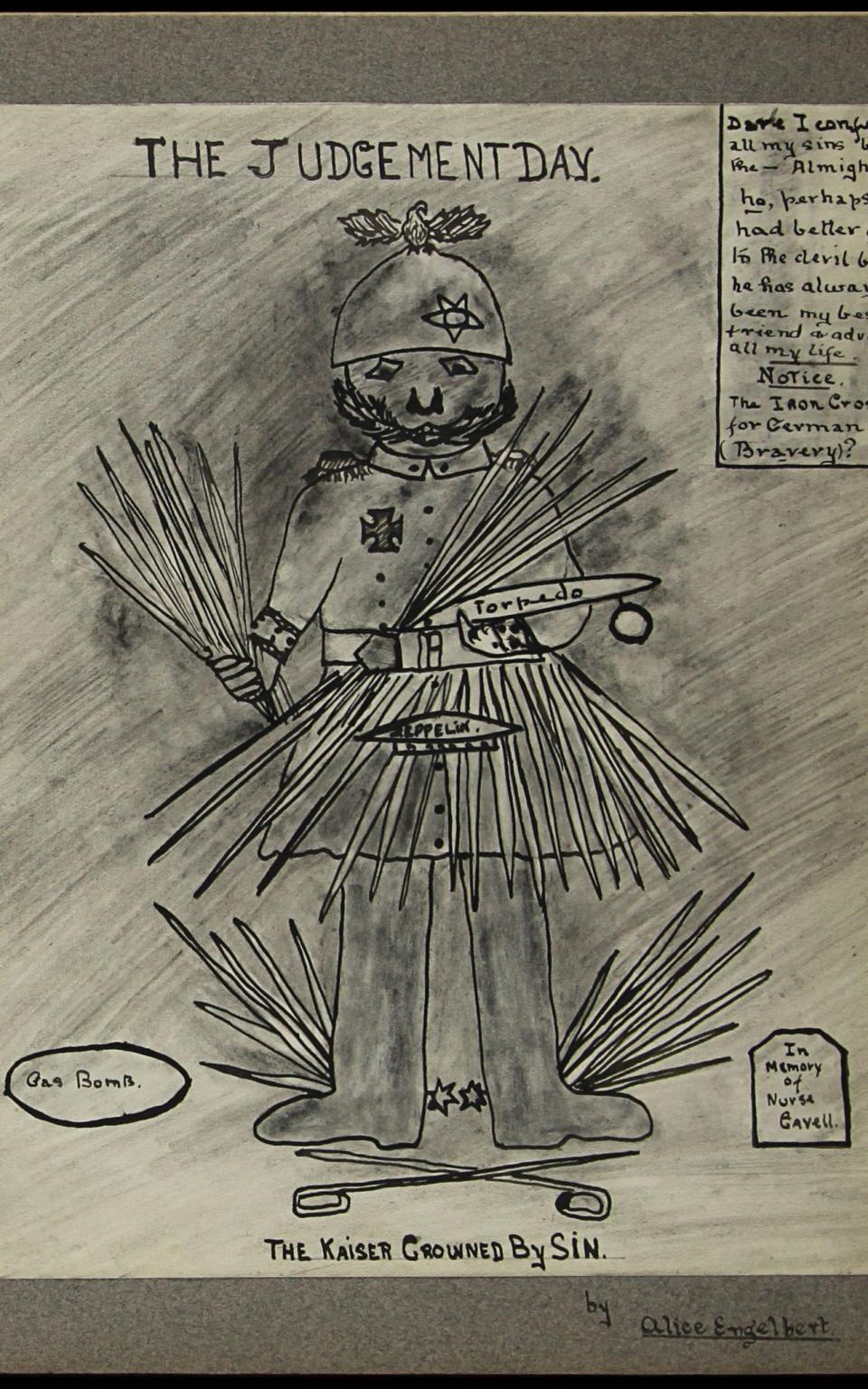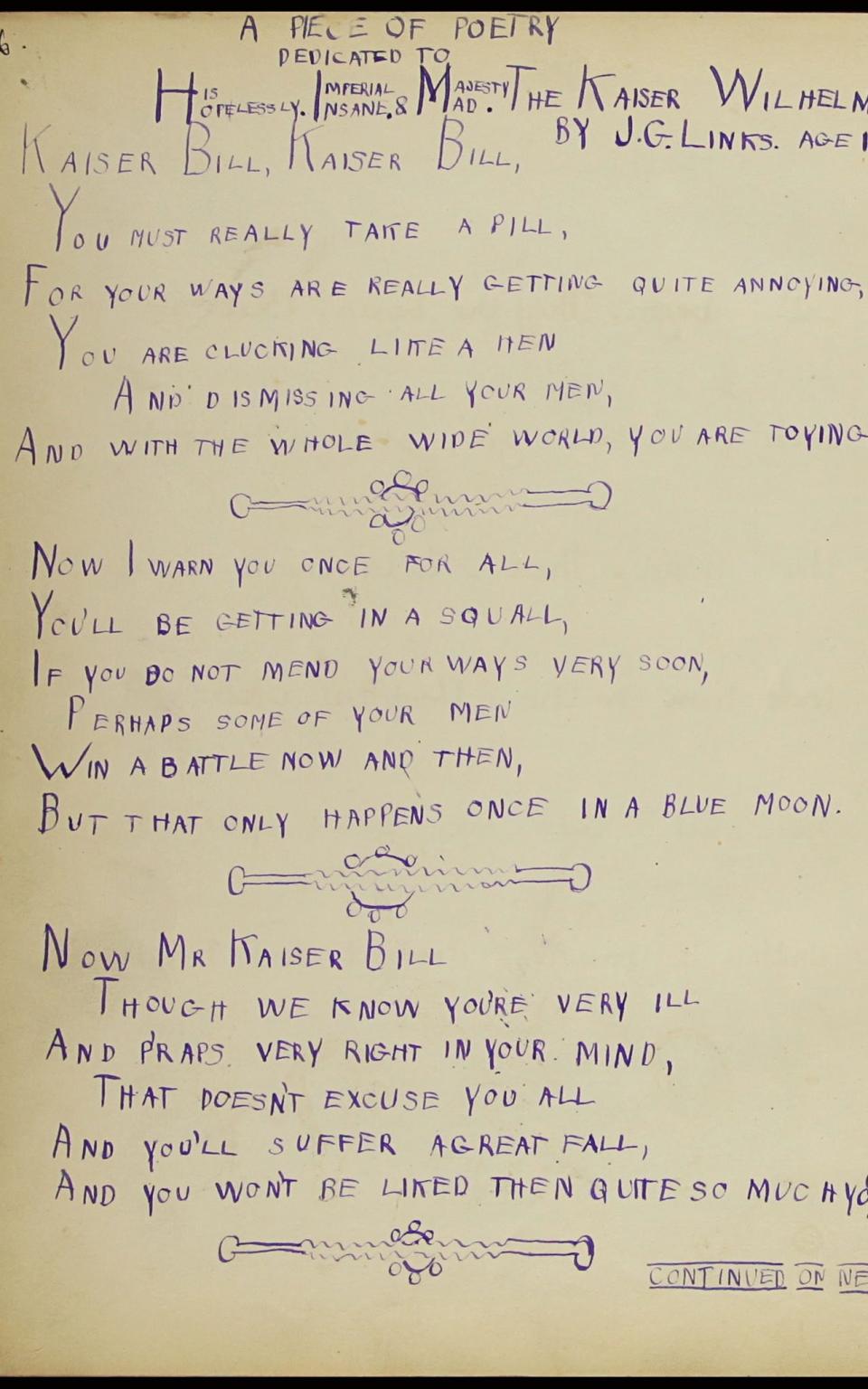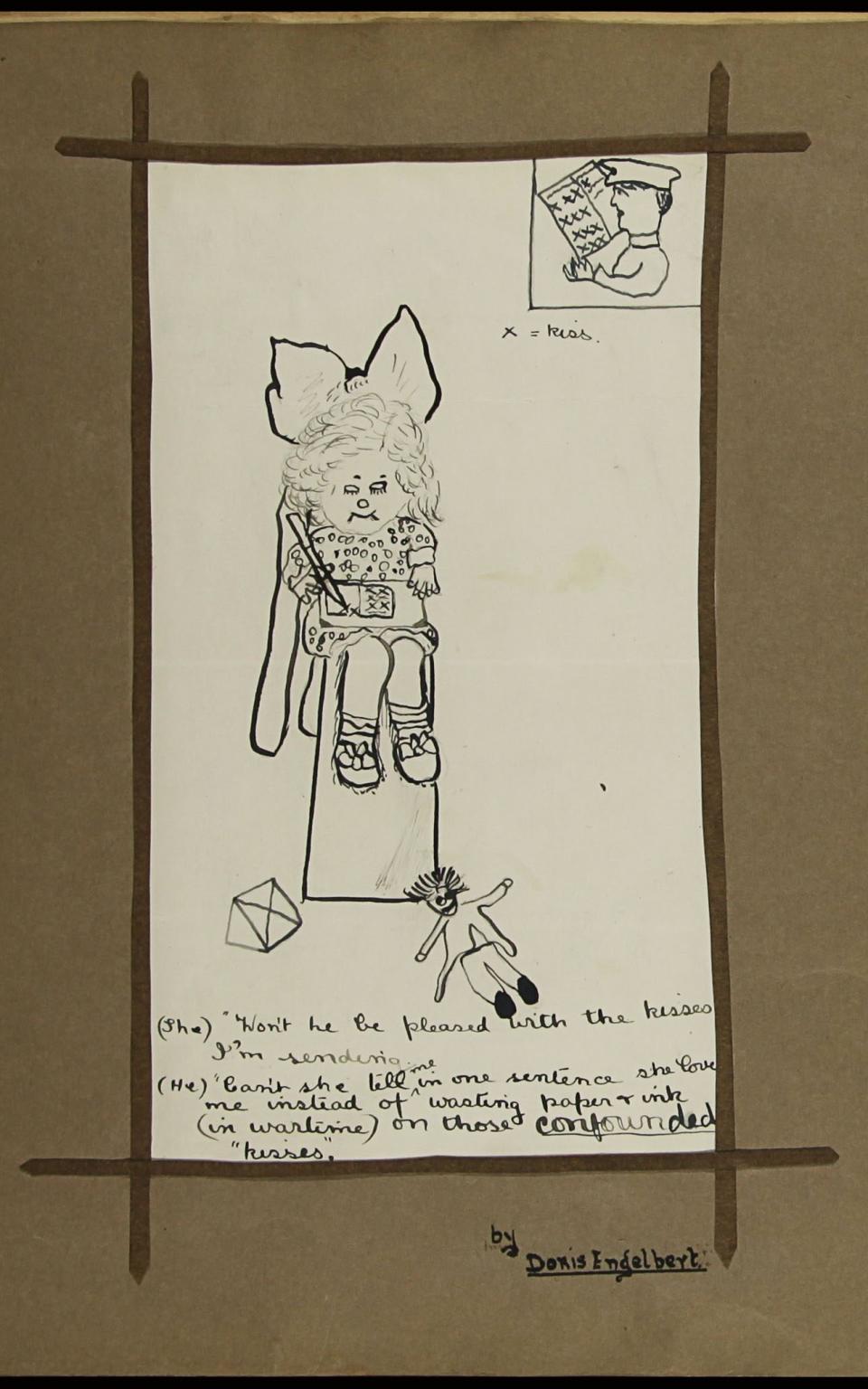Revealed: The First World War through children's eyes
An extraordinary collection of children’s poems, essays and drawings created during the First World War is to be exhibited for the first time, after being lost and forgotten about for decades.
Two bound manuscripts of work from 1915 and 1916 offer a remarkable insight into children’s perceptions of the British war effort, both on the battlefields and on the home front.
They include a picture of a young girl crying because she cannot join men in fighting for her country, and a cartoon of the German Kaiser “crowned by sin”.
The tranche of documents, which are now being showcased as part of a digital archive aimed at capturing and preserving stories of London’s Jews in the First World War, are a compilation of work by pupils aged between eight and 16 from the religion classes of the Liberal Jewish Synagogue (LJS) in St John’s Wood, north London.
Ian Cooke, head of contemporary British publications at the British Library, said that such a large collection of children's work from the war era is extremely rare.
“In our own collection at the British Library we only have two accounts written by children about a Zeppelin raid in London, but I’ve never seen anything else like this from Britain,” he said.
“The chances of children’s work surviving 100 years is pretty slight. “You tend to find school photos, or the propaganda messages aimed at children, but not actually work done by children. To actually preserve children’s voices like this is very rare.”
After the war, the two bound volumes of work, titled Side Issues of the Religion Classes, had been placed in storage boxes, where they had been gathering dust for decades.
They were found on top of a cupboard at the LJS in the 1980s during a refurbishment, only to be put back into storage again, this time in a damp basement. In 2014 the synagogue's archivist, Sharon Lewison, re-discovered the collection.
It has undergone extensive restoration over the past three years and will now go on display for the first time in a century as part of a online digital archive, set up by a Heritage Lottery funded project called London Jews in the First World War.
Project Director Alan Fell said that the discovery "exceeded all expectations", adding: "We feel privileged to be able to provide the vehicle to bring it to public view".
One picture, by Sybil Izbicki, shows a young girl in a red dress with tears rolling down her face, pointing to a sign which says “Your King and Country need 10,000 men”, as she asks “why wasn’t I born a man?”
Another drawing, by Alice Engelbert, is titled “The Judgement Day: The Kaiser crowned by sin” and shows the German Kaiser dressed in military garb with spikes coming out of his boots and belt.
The Kaiser ponders whether to “confess all my sins before the Almighty”, but resolves “perhaps I had better go to the devil because he has always been my best friend and advisor all my life.”
Included in the works is a poem by 11-year-old Joe Links who dedicates it to “His Hopelessly Imperial Insane Majesty Mad Kaiser Wilhelm II”.
The opening verse of his poem, written in purple ink and illustrated with a sleeping Tommy, reads: “Kaiser Bill, Kaiser Bill; You must really take a pill; For your ways are really getting quite annoying; You are clucking like a hen; And dismissing all your men; And with the whole wide world you are toying.”
Dr Tim Powell, a senior advisor at the National Archives, said the children’s work is “lively and engaging”. He added: “The First World War features prominently in the pages and through the contributions we get a sense of popular perceptions of and reactions to the war among a section of the youth of London”.
LJS senior rabbi Alexandra Wright said: “These extraordinary volumes reveal the views and thoughts of young LJS Londoners experiencing hostilities, a century ago. We should listen to their voices and recognise their courage and their loss of innocence as war consumes their world.”
You can view the full archives online by visiting The First World War through the eyes of London’s Jewish children.

 Yahoo News
Yahoo News 